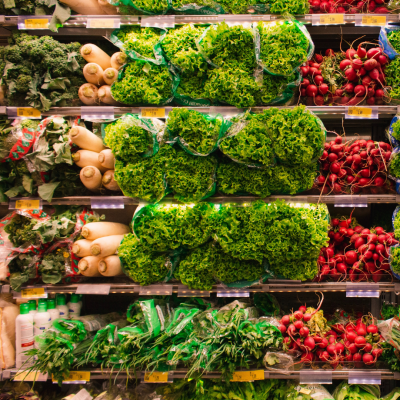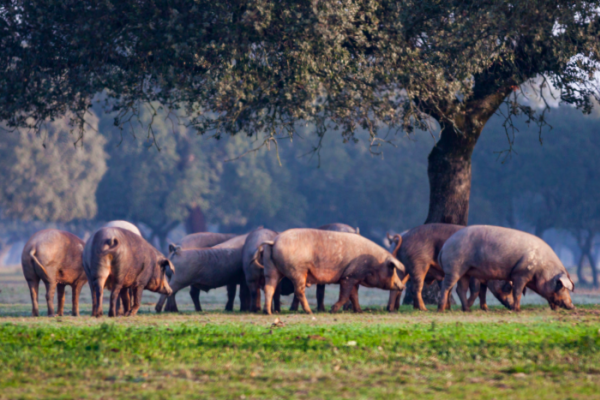Initially developed with Tesco, WWF is now working with five UK supermarkets to halve the environmental impact of UK baskets by 2030, using the WWF Basket metric to track progress. The pledge made at COP26 by Tesco, Sainsbury’s, Co-op, Waitrose and M&S commits the retailers to: -
- Focusing on climate, deforestation, agricultural production, marine, diets, food waste and packaging, as measured by the WWF Basket.
- Reporting data annually to WWF against these pillars and publicly reporting on actions taken.
The WWF Basket is a framework, detailing details the outcomes, measurements and actions needed to halve the impact of UK baskets including:
- Achieve a UK basket outcome of 100% meat, dairy and eggs, including as ingredients sourced to ‘Better’ standard.
- Set targets and develop action plans for % of meat, dairy and eggs sold in the ‘Better’ and ‘Best’ categories of the Eating Better Sourcing Better Guide.
- Publish proportions of meat, eggs and dairy sold in line with the Eating Better Sourcing Better Guide of ‘Basic’, ‘Better’ and ‘Best’
- Reduce or remove price promotions from less healthy, less sustainable options such as intensively-produced and processed meat products.
- Under diets - increase the proportion of vegetarian and plant-based meals relative to meat-containing meals using Eating Better benchmarking as a guide.
Tanya Steele, CEO at WWF-UK:
“We can’t tackle climate change and keep global temperature rise to 1.5C without halting the loss of nature – and we won’t save nature without changing what’s on our supermarket shelves.”
“Food production is one of the biggest threats to our planet, driving habitat destruction and biodiversity loss. But it doesn’t have to be that way, and supermarkets can play their part in helping us eat healthier and more sustainably, by supporting a wholesale shift to regenerative farming methods and promoting diets with ‘less and better’ meat and dairy and more plants.
“Leading retailers are adopting the WWF basket metric, which seeks to halve the impact of an average UK weekly food shop by 2030, and we hope others follow suit to ensure the products we buy are better for us, better for nature and better for the planet”

